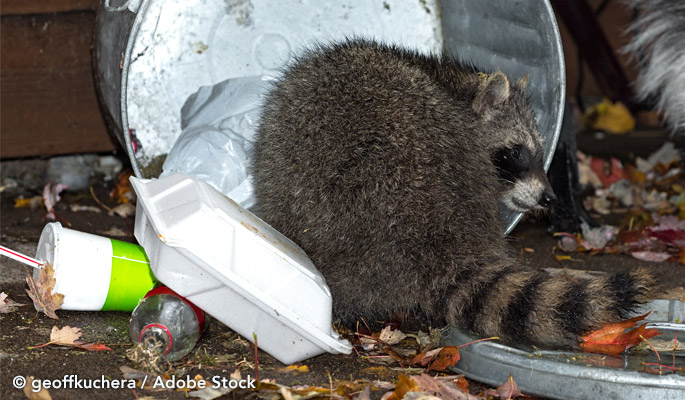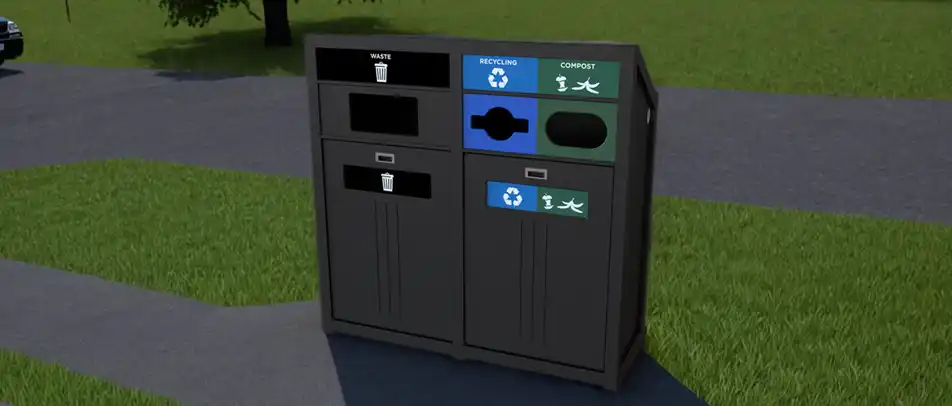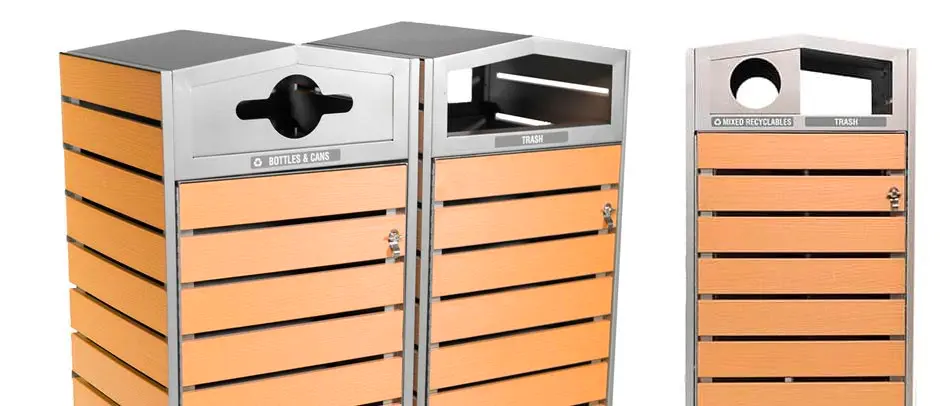
You may have noticed that your waste receptacles are a prime target for raccoons and a number of other hungry, or curious animals, but as the warm summer months are upon us, the infestation of bees and wasps can pose and even bigger dilemma. Fortunately, there are a few things you can do to help protect your bins from becoming invaded by most types of annoying pests.
Animal Proofing Your Waste Receptacles
By now, you have likely discovered that hungry animals will stop at nothing to gain access to your waste receptacles. While keeping these pests out of your trash can seem daunting at first, success is just a few steps away. Here is how to keep pests away from garbage receptacles.
- Ammonia: Spray the interior and exterior of your trash receptacle with ammonia to ward off unwelcome pests like raccoons. To some animals, the scent of ammonia is so similar to the scent of urine that it discourages them from approaching.
- Commercial Repellents: Sprinkle commercial repellent granules around the base of your waste receptacle. Consider using natural store-bought repellants that are less harmful to the environment and the pests themselves, brands like Chemfree make natural pest control options and are easy to find.
- Motion Detectors: The sudden bright light from motion detectors will help ward off nocturnal pests.
- Lids: If your receptacle is equipped with a lid, keep it secured with a locking mechanism to keep those curious animals at bay. If a locking mechanism is not possible, consider securing your lid with bungee cord or rope.
Keep Bees and Wasps at Bay
As the warmer summer months’ approach, bees and wasps will become commonplace around waste receptacles. While both bees and wasps are beneficial in a number of ways, they can also prove extremely dangerous to many humans. Problematically, the bee population is in a significant decline that affects our day to day lives; bees and other pollinators are essential to a strong ecosystem, and a third of all foods are dependent on this pollination. Though they may seem like frustrating pests, it’s incredibly important that you’re able to guide them away from your waste receptacles without harming them. Follow these tips to learn how to keep bees and wasps away to prevent an infestation:
- Lids: If your waste receptacle is equipped with a lid, be sure to keep it tightly sealed as much as possible to prevent bees and wasps from becoming tempted by the lingering scents that might be attracting them. If a lid is not available, placing waste inside sealed plastic bags is also helpful.
- Clean: Some consumers have found it helpful to wash out receptacles frequently to prevent spillage from building up inside the container. Frequent cleanings will also help remove any nests that have built on or inside your receptacle.
- Rinse: Whenever possible, rinse soda cans and other containers thoroughly before placing them inside your recycling & waste receptacles.
- Nests: If you notice nests on or near your bins, have them removed immediately. However, if there is a swarm present that is identifiable as Honey Bees, call a local beekeeping service to safely remove them without harming the bees.
- Traps: Consider placing commercially made traps around the base of your waste receptacles. Favor natural repellents and store-bought products that do less harm to the animals and the environment when possible.



































































































































 Three Ways to Engage Teams and Clients to Maximize Your Recycling Program Engagement
Three Ways to Engage Teams and Clients to Maximize Your Recycling Program Engagement  How to Integrate Accessibility Into Your Sustainability Planning
How to Integrate Accessibility Into Your Sustainability Planning  Why Park Benches Can Promote Workplace Well-Being
Why Park Benches Can Promote Workplace Well-Being 

Really useful article with a number of simple things that anyone can do to help reduce or control unwanted vistors. Many of these suggestions are common sense….yet not common practice. We tend to just tolerate the situation and hope it will get better.
Thanks for the great article with advice more people need to see!